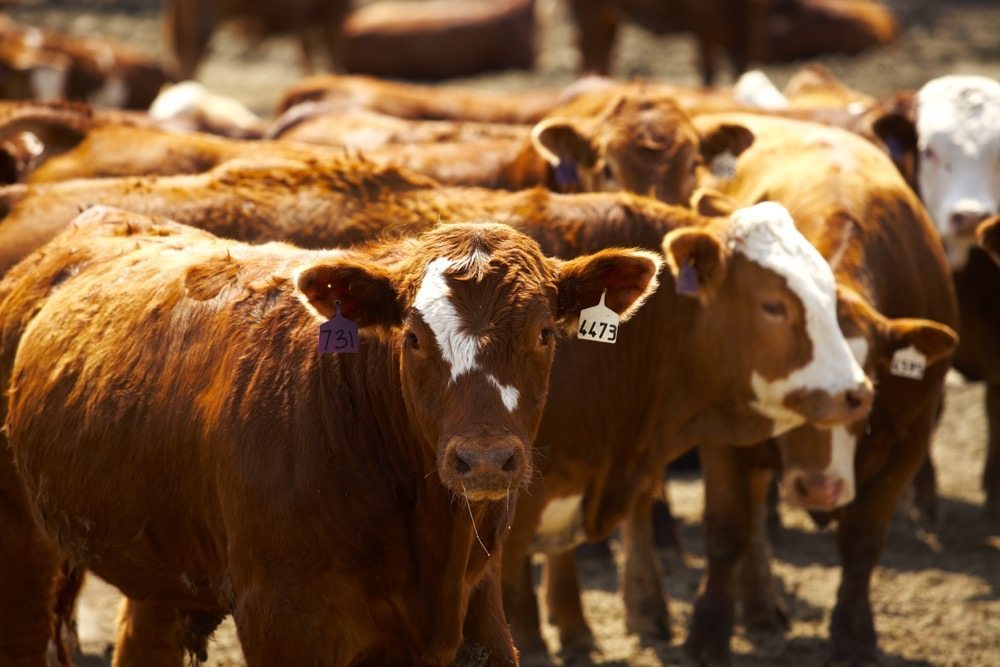Cattlemen Look to Benefit From New CPTPP Trade Agreement

The Comprehensive and Progressive Trans-Pacific Partnership (CPTPP) was signed by 11 countries in Santiago, Chile on March 8, and has cattlemen across the country lobbying for quick action by the federal government
Hilary Klassen – Postmedia Content Works
“We’d like to see it ratified before summer and to be one of the first six countries to put that in place so we get the benefits as fast as possible,” says Ryder Lee, CEO of the Saskatchewan Cattlemen’s Association (SCA).
The agreement generated much discussion at the Canadian Roundtable for Sustainable Beef (CRSB) semi-annual meeting in Regina in early April. It’s a remake of the original Trans Pacific Partnership (TPP) but without the United States.
Ottawa is in the process of getting the necessary legislation in place to put before the House of Commons. At the signing of the CPTPP, ministers vowed to complete their domestic processes ‘expeditiously,’ but following the CRSB meeting, the SCA sent a delegation of board members to speak to as many MPs and senators as possible.
“A comprehensive new trade agreement could open some big doors for Canadian cattlemen”
“There’s real costs to not getting it done fast,” says Lee.
Right now, Japan is a lucrative market and Australia has tariff advantages there, Lee says.
“If other countries ratify this agreement before we get it done, they’ll have an advantage as well.”
Canada currently pays a 38.5 per cent tariff on Canadian beef exported to Japan. After the phase-in period, that tariff will be down to nine per cent.
The United States and Canada are the No. 1 competitors for high quality, grain fed beef around the world. But since the U.S. isn’t part of the agreement, there’s opportunity for additional advantages.
“Us having a large tariff advantage into Japan versus the U.S. would be great. Maybe we can displace some of their product in the market and earn a higher value,” adds Lee.
Ryder Lee, CEO of the Saskatchewan Cattlemen’s Association.
It’s a rare opportunity to capitalize on extraordinary market conditions for lasting benefit.
Canadian beef has seen real growth into China. The top market last year was still the U.S. and next to that was Japan, Hong Kong and Mexico, Lee says. The concern now is to ensure NAFTA negotiations don’t do any harm to that market.
“We’d like cattle and beef moving back and forth between the U.S. and Canada to be based on the market, not based on made-up tariffs and other made-up barriers that don’t help the industry, they just add costs.”
The news that the Canadian Agricultural Partnership will invest millions in ag research was welcomed by farmers and ranchers. Producers also saw the federal government walk back a decision on capital gains taxation after hearing how the tax would affect farmers, making it more difficult to transfer their operations to the next generation. That advocacy process was a real success, Lee says.
Calving season in Saskatchewan brought extra stress to farmers this spring as winter continued well into April. Lee noticed a new willingness by farmers on social networks like Twitter to talk about and draw awareness to stress on the farm.
“People online are normalizing those kinds of conversations. It’s a positive development to a negative reality,” he says.
Weather is never far from agricultural concerns.
“After a dry 2017 year, we’re all nervous about what’s going to fall out of the sky,” Lee said.
Farmers need a wet year to recharge the water tables and watering holes that were depleted over a good portion of the province last year.
Lee says there’s cautious optimism in the cattle industry. Growing global populations and growing prosperity around the world means there’s a growing appetite for protein.
“That’s a positive outlook for beef. But that’s a big picture thing. When you dial it back to the local realities, it brings some caution — what’s the rainfall like, what’s the grass growing like. We have to get through the local reality to capture that opportunity.”
Triple A Canadian beef is available in big stores like Costco, Walmart, Loblaws and Sobeys, and is seen as an unparalleled product around the world, Lee says. The industry began discussing a sustainable beef framework last fall that is working on developing a robust label that will identify Canadian beef products all over the world as ‘verified sustainable beef product’ or something similar.
The industry provides assurances that producers feed their families the same product they’re selling into the market. They’re listening to a growing consumer base that is willing to pay for ‘a little extra story or assurances’ around the product.
There are about as many cows in Saskatchewan as there are people, so the province will always produce more beef than it can consume, Lee says. Even so, some of those large global markets wish Saskatchewan could produce more.
“We try to make sure we’re giving people permission to enjoy beef as much as they can,” says Lee.













